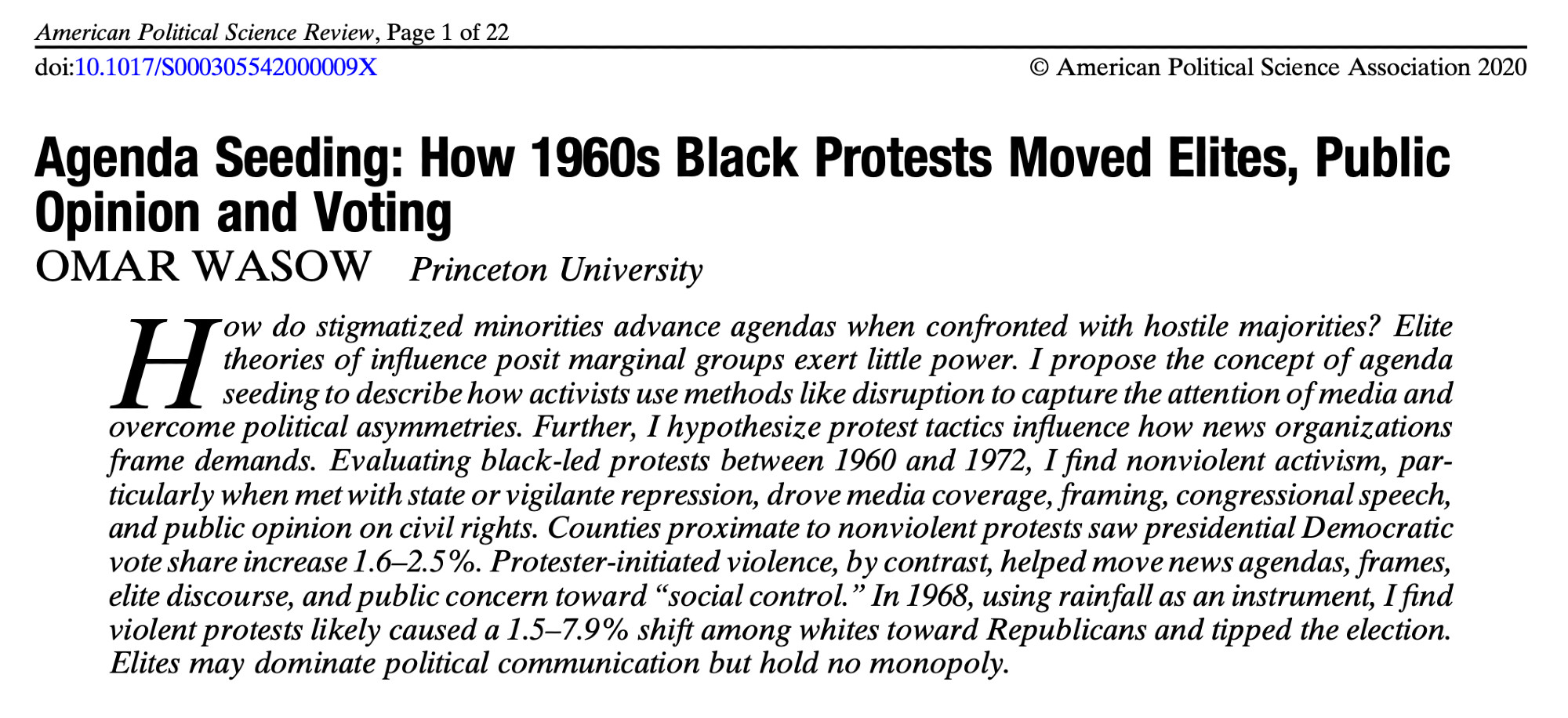I’ve been studying civil rights protests for 20 years. With new mobilization against Trump’s agenda, I’m sharing a thread summarizing my research on how nonviolent & violent actions by 1960s activists and police influenced media, elites, public opinion & voters. 1/ https://www.cambridge.org/core/journals/american-political-science-review/article/agenda-seeding-how-1960s-black-protests-moved-elites-public-opinion-and-voting/136610C8C040C3D92F041BB2EFC3034C

Comments
Or at least protesting at times and places when/where the state is most likely to respond with force?
Clearly a lot of solidarity and restraint among protesters in the 1960s South. I'm wondering if that level of apparent cohesion is possible or even likely today.
Do you have any book recs for this topic? Particularly those focused on Civil Rights in southern states.
I grew up in Alabama, and I'd love to better connect the current moment and resistance to lessons learned from protesting in the apartheid south
Share widely so that media won't be able to ignore Americans this President's Day!! #50501 #buildtheresistance #wethepeople
Read it. Assigned it. Cited it.
But things a different now, now we have social media
Social Media produces a bigger response than state initiated violence. Hashtags, hashtags are critical to social protests. Hashtags group all the protests together in one spot from around the world.
Professor Emeritus Michael Nagler has also written about and taught nonviolent movements and their historical roots. He argues that nonviolence is a powerful, active force for social change.
Here's a link to his Metta Center for Nonviolence website: https://www.mettacenter.org
A counterpoint: Georgians (the country, not the state) have been peacefully protesting the Russian installed government. They have been met with state violence and 'disappearings'. How much coverage has that received in the media? Social media changes the political environment.